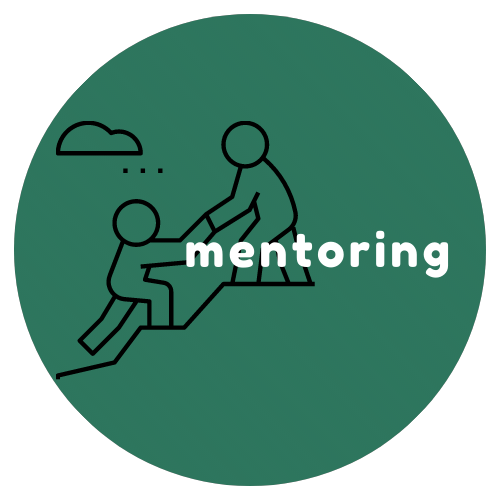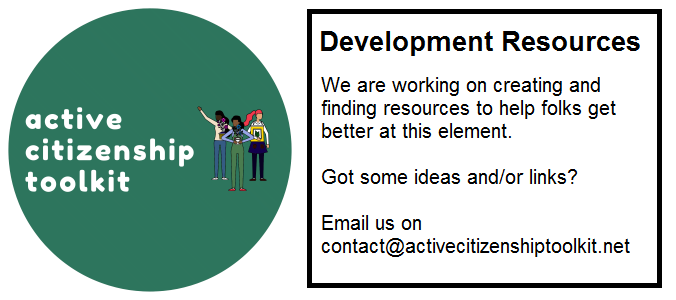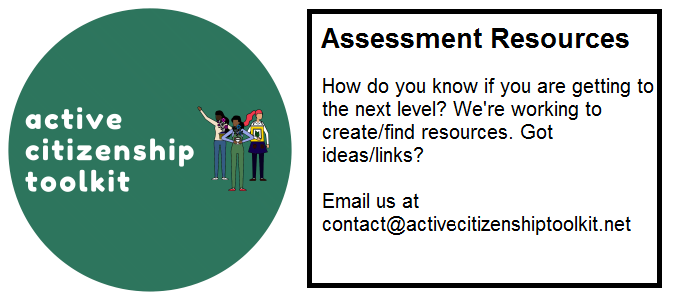Element Descriptor

Mentoring is the creation of conditions (explicit goals, regular meetings, wisdom/support, feedback, a sense of care and safety) where you help someone else develop their skills, knowledge, relationships and general abilities If you don’t have the skill in your group, you’re unlikely to be able to increase the skills base quickly, leading to ossification, risk of single points of failure, dominance by those with the skills and ultimately folks voting with their feet/the group dying.
Level descriptors
| Novice | Practitioner | Expert | Ninja |
|---|---|---|---|
| Can work with one individual who likes and respects them on a simple set of tasks and goals (nowt wicked) with a relatively long-time frame. Has a working knowledge of Vygotsky’s scaffolding and zones of proximal development Follows straightforward ‘watch me do one, we will do one together, I’ll watch you, you fly solo” | Can work with two or more individuals, at different levels, who may or may not like but on the whole respect the mentor, to develop skills in tricky skills with fuzzy boundaries, with limited resources but without too many time constraints Has a basic knowledge of ego-defence mechanism | Can work with multiple individuals, including ones who are talented but mercurial and have had previous bad experiences of mentoring, to develop or hone skills which are constantly needing to shift because of changing organisational demands, against a backdrop of bleakness and impending defeat (would need to be an expert at giving feedback for this | Can work with individuals and groups who have long nasty histories of dispute with each other and a FTW attitude to improve skills from novice to ninja in short-time frames for mission critical and high stakes tasks where nobody knows the rules of the game, beyond the fact that the game is – obvs – rigged. Regularly innovates in skills building, and turns mean girls and boys into paragons of mentoring virtue through their example. |
Element Overview Essay
This is a draft. If something doesn’t make sense, or you see typos, or if you have further ideas, please email us on contact@activecitizenshiptoolkit.net
The causes of this being done badly is that most people haven’t been successfully mentored themselves. They might have been coached, they might have been trained. But mentoring is different but overlapping.
So, if you’ve not been on the receiving end, chances are and you’ve not seen it, chances are you’re not gonna be able to do it. Well, that’s fairly obvious. (As Harry Harlow’s subjects showed us)
I suppose we should define mentoring.This will do
‘Mentoring is to support and encourage people to manage their own learning in order that they may maximise their potential, develop their skills, improve their performance and become the person they want to be.’
So the consequences of not doing mentoring well is you’re unlikely to retain people who might need or want a bit more support, encouragement, guidance, mentoring. And if you lose them that demoralises them perhaps you, it means that your group doesn’t grow or stays the same size because other people are inevitably going be leaving. And you follow the normal pattern of up like a rocket down like stick on a slope maybe.
So, what is to be done? Well take mentoring seriously, get better at it. Maybe have a buddy system which is overlapping with mentoring but there’s not the same thing. So that you can develop those skills and spread them, and make them normal.
Development Resources

Assessment Resources

